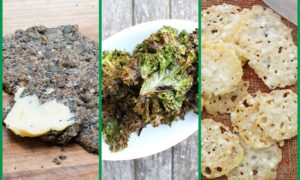Estimated reading time: 2 minute(s)
It’s very common for people to be wary of low-carb diets because we have gone through most of our life believing that sugar provides glucose to our brains, gives us energy and that we need them to live. The truth is, we can live without them. Today we are going to tackle some of the most common misconceptions about low-carb diets and the complete absence of them in a natural diet.
- Isn’t fat what causes heart attacks?
Thanks to the sugar industry, fat is blamed for all heart attacks. Fortunately, recent scientific research has shown that naturally saturated fats are both good and healthy. These fats are naturally found in foods, such as milk, meat, nuts, butter, and other such foods.
- Low-carb diets raise cholesterol levels:
Low-Carb diets improve cholesterol by increasing good cholesterol and lowering bad triglycerides. A quality diet that is low in carbohydrates and high in fat is associated with an overall improvement in cholesterol levels and helps reduce major risk factors linked to diseases.
- Carbs are a source of energy for our brain
Our brain can be fueled by fat once it has been transformed into ketones by the liver- think of it as an alternative fuel for the body. Ketones are produced in the liver by breaking down fat. Through this process, fat is not only burned faster but the body also produces its own glucose through gluconeogenesis. This process synthesizes other nutrients and transforms them into carbohydrates for our brain.
- A carb-free diet lacks macronutrients:
This is not the case, in fact, it’s probably just the opposite. A diet rich in foods like fruits, vegetables, and proteins is much more nutritious than a slice of bread. Take eggs, for example, they are considered to be one of the most nutritious foods in existence. When we substitute foods like bread, pasta, and potatoes for other vegetables and proteins that are richer in micronutrients the quality of our diet is greatly improved.
- Low-carb diets harm our kidneys:
This is a myth that comes from people who associate high-protein diets with kidney disease. However, a low-carb diet is high in fat, not proteins. There are no benefits in eating just meat, chicken, and pork, but rather there are benefits in maintaining a balanced diet of proteins, fats, vegetables, and fruits.
- Low-carb diets cause depression:
The initial switch from a diet rich in refined carbs and sugars to a low-carb diet may feel impossible and it may even cause some uneasiness. However, if you stick to it, your body will begin to adjust and those feelings of tiredness, irritability, poor concentration, and lethargy will begin to disappear and you’ll actually start to feel more energized and happier. This is because sugar is like a drug for our brain and the withdrawal symptoms are very similar to those from narcotics. You can help to alleviate these symptoms by drinking lots of water to help detox. Once the symptoms pass you will feel a tremendous sense of overall well-being.
- You can’t workout without carbs:
A low-carb or carb-free diet can either be really bad or really good for exercising. When you first begin this lifestyle slowly, you will notice your workout pace decreases initially but this usually passes after the first two weeks when your body has had time to adjust. There are athletes who have done very demanding races following a natural healthy lifestyle, low in carbs. It’s true that for certain very demanding sports it is recommended to eat some carbs either the day before a race or the day of.











